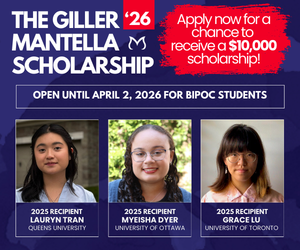Are you effective, successful and happy in academic work?
It’s what you do each day and ultimately contribute that matters most, not how much you do, or how long it takes.

What drives your academic work? Personal fulfillment, freedom, making a difference or being finely aligned to your university’s goals? Do you value being slow in your scholarship or producing prolifically? Dollars or decolonization? Dollars and decolonization? Work trade-offs proliferate for academics. And there’s never enough time.
Yet, despite the complexity and sizable investments made in academic work, so much is left to chance. Painfully segmented and task-oriented professional development also often dwells on the symptoms of bad academic work choices, rather than the root causes of challenges you face. Writing grants here, teaching online there, mindfulness sessions everywhere. The granular dominates the grand.
The right academic work simply does not happen by magic. Truly realizing your vision — whether for teaching or research, administration or engagement — is undoubtedly hard and almost invariably complex. More a set of ongoing practices than a definitive arrival. That’s why every month in this new column we’ll draw on research and scholarship about research and scholarship — to grapple with the unique nature and challenges of doing academic work well in today’s world and within your broader life. We’ll focus on what matters most.
We will seek to embrace all forms, stages, and complexities of academic work — from graduate student and faculty travails to administration woes, with a focus on personal growth and development. And, above all, we will retain a single, clear premise: that everyone doing academic work should seek to be effective, successful and happy.
Why effectiveness in academic work? Academic work is not manufacturing work. We are not making sausages — a set of ingredients or inputs won’t yield a consistent result. Yet, when more academic work is lazily equated with better work, we risk folly. The many academics who accuse institutions of doing this, while simultaneously equating their own personal credibility with their publication numbers, illustrates how lost we can become. Never forget: teaching and research is extreme knowledge work to its core and bounds — work that uses knowledge, through knowledge, to generate knowledge. Accordingly, our actions each day must follow Drucker’s plea to “do the right things” when there are oh so many things that we could do. Naïve academic working cultures predicated on long working hours beware. You are missing the point: it’s what you do each day and ultimately contribute that matters most, not how much you do or how long it takes.
Everyone wants to be successful, right? Yet, success in academic work is as slippery as it is vital. Your personal values, institutional priorities, career stage, discipline and much more — all fuse to inform what success can be for you in your work. But too often success is assumed to be of a singular type reached by a singular path. Narrow conceptions of success in academic work harm both people and knowledge. As extreme knowledge work, conceptions of success should vary startlingly. Be explicit about what success looks like for you. Without this, it will be impossible to make choices and plan for how to achieve it.
Also, success in academic work can never solely be in the eye of the academic. It is always “out there,” defined not only by how we think about our work or ourselves, but by the actions and judgement of peers, students, communities and societies. Holding onto delusions of success in your own head helps buttress battered academic egos, but is as tragic as it is wasteful to you and the world.
And finally: happiness — the great unmentionable in academic workplaces — whose absence is evident everywhere but whose place and priority is usually nowhere. What do we mean by happy? We’re not referring to a deranged grinning emoji form of happiness, nor a happiness predicated on the absence of trouble. Rather, we mean happiness as deep fulfilment and fit, despite the struggles. A happiness that helps see you through it all. For any who recoil from the mention of happiness in academia, remember: preoccupation with happiness has been central for centuries, from Socrates to Stoics, Atwood, and Marx. It was also the focus of Western civilization’s first book, the “History of Herodotus.” Working towards happiness is a preoccupation that is as ancient as it is diverse and transcending. If you’ve ever made truly courageous decisions to end relationships, change careers, or move jobs, you’ll know that happiness is about as far from fluffy as you can go.
So, here’s to effectiveness, success and happiness in academic work. Wherever you have come from, wherever you are going — you aren’t alone, and we hope you will find something useful here.
Featured Jobs
- Engineering - Assistant Professor, Teaching-Focused (Surface and Underground Mining)Queen's University
- Human Rights - Assistant Professor (Expertise in Peace & Conflict Studies, Socioeconomic Rights and/or Indigenous Rights)University of Winnipeg
- Anthropology of Infrastructures - Faculty PositionUniversité Laval
- Canada Impact+ Research ChairInstitut national de la recherche scientifique (INRS)
- Human Rights - Assistant Professor (Expertise in Human Rights related to Artificial Intelligence and Digital Security)University of Winnipeg

















Post a comment
University Affairs moderates all comments according to the following guidelines. If approved, comments generally appear within one business day. We may republish particularly insightful remarks in our print edition or elsewhere.
2 Comments
It is all well and good to have one’s own conceptualization of academic success (and sanity may depend on it); you can even understand that there can be diverse experiences and measures of success. But it all means naught if you are trapped like a fly in amber in an academic culture that nearly exclusively measures success by quantity (esp. research $$, publication #s) above all else. Excellence in teaching is ok, administrative commitment is to be endured (or avoided). Increasingly my sense of professional success (and sense of purpose) comes from the responses from the many students that truly learned and were inspired. Otherwise it seems we are ‘knowledge-worker-drones’ and are treated as such.
Job satisfaction leads to a positive ambience at the workplace and is essential to ensure the higher revenues for the organization….. and in five facets you get satisfaction at large.. pay, promotions and promotion opportunities, coworkers, supervision, and the work itself…